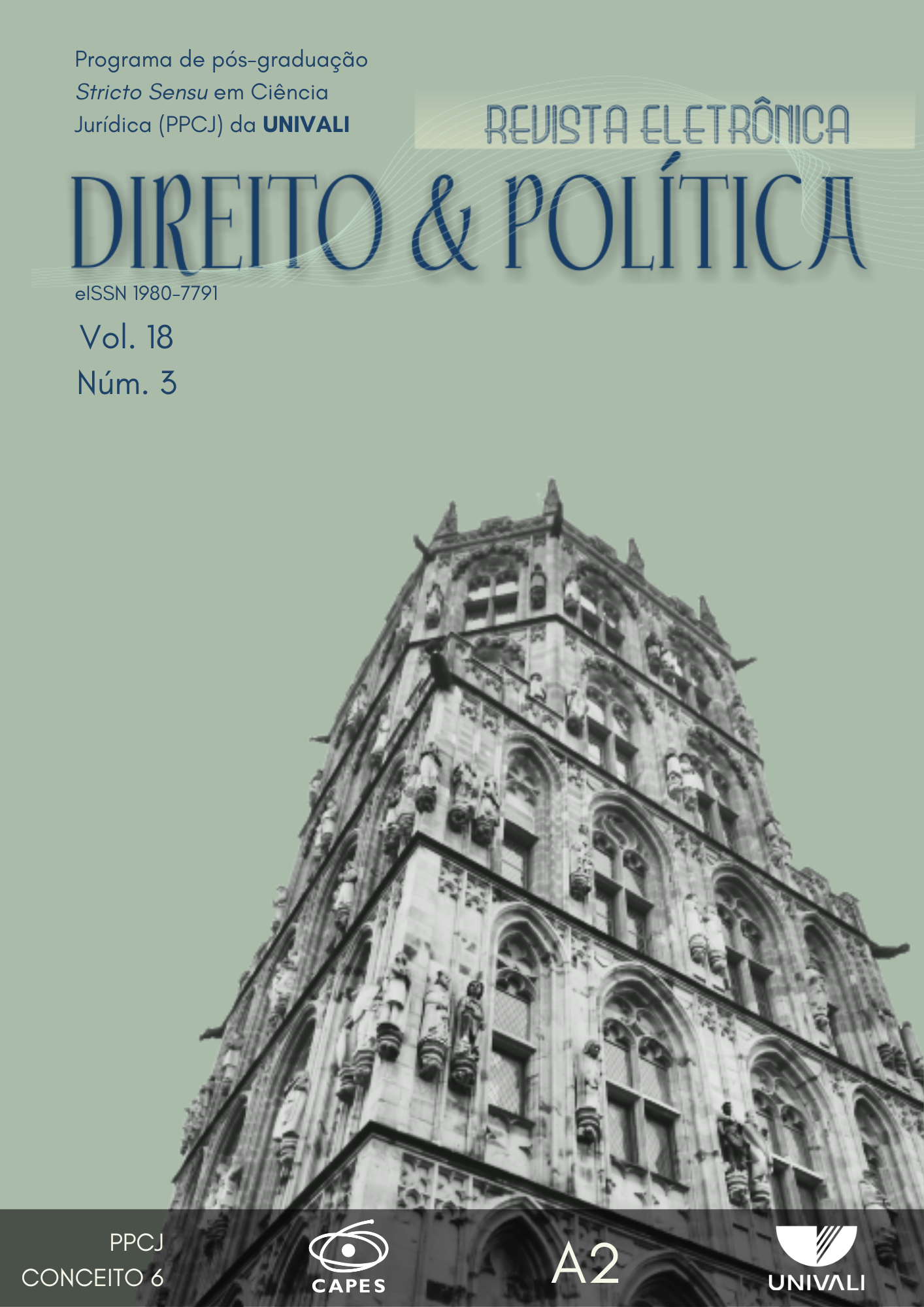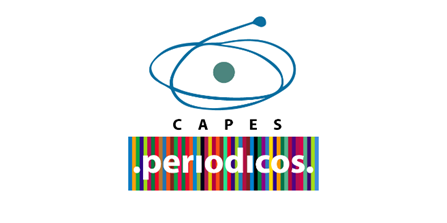DEFENSIVE DEMOCRACY AND OVERCRIMINALIZATION: THE CRIMINAL ORGANIZATIONS LAW AND THE EFFECTS OF ADI-5567 ON PUBLIC POSITIONS AND FUNCTIONS
DOI:
https://doi.org/10.14210/rdp.v18n3.p510-532Keywords:
Overcriminalization, Democracy, Loss of Public OfficeAbstract
Contextualization: The phenomenon of corruption nowadays has expanded to multiple physical and virtual borders, reaching public and private relations that develop within the scope of Society, State and Market, particularly with regard to economic and organized crime, generating real scenarios of overcriminalization (criminal offenses marked by extremely high levels of complexity and sophistication, as well as generating tragic impacts of an individual, collective and diffuse nature, inclusive of Democracy). Because of this, legislation and policies to defend the Democratic Rule of Law have been developed, with an increase also in terms of penalties for subjects who provoke those crimes, especially for public agents, given the institutional and political nature of the positions and functions that they occupy.
Objectives: The general objective of this work is to evaluate, based on approaches to the concepts of overcriminalization and defensive democracy, to what extent the determination of art.2º, §6, of Law nº12,850/2013, which deals with the loss of office and removal from public duties for eight years of any public agent involved with criminal organizations, and the decision of the Federal Supreme Court, in ADI-5567, are consistent with the Brazilian regulatory system as a whole.
Methodology: We use the deductive method in our work, and as a research technique, we use the evaluation of indirect documentation, namely bibliography.
Results: As results, we intend to propose a broader perspective as the basis for the STF's decision, in order to take into account the political and legal nature of public positions and functions in the Democratic Rule of Law.
Downloads
References
BALIBAR, Étienne. Violence and Civility – on the limits of political philosophy. New York: Columbia University Press, 2020.
BEALE, Sara Sun. The many faces of overcriminalization: from morals and mattress tags to overfederalization. In http://scholarship.law.duke.edu/ , acesso em 18/07/2017.
BERMEO, Nancy. On democratic backsliding. In Journal of Democracy, Baltimore, v. 27, n.1, 2016. DOI: https://doi.org/10.1353/jod.2016.0012
BIANCHINI, Alice. Criminologia. São Paulo: Editora RT, 2012.; (e) CUSSON, Maurice. Criminologia. Lisboa: Casa das Letras, 2010.
BOBBIO, Norberto; PONTARA, Giuliano; VECA, Salvatore. Crisi della democrazia e neocontrattualismo. Roma: Riuniti, 1984.
BOUMEDIENE, Lakhdar. (editor). Witnesses of the Unseen: seven years in Guantanamo. Stanford: Stanford University Press, 2018.
CASTELLS, Manuel. Ruptura – a crise da democracia liberal. Rio de Janeiro: Zahar, 2018.
CATTANEO, Mario. Hobbes’s Theory of Punishment. In BROWN, K. C.(ed.). Hobbes Studies. Oxford: Basil Blackwell, 1965.
CAVALIERE, Antonio. Diritto penale del nemico e di lotta: due insostenibili legittimazioni per una differenziazione, secondo tipi d’autore, della vigenza dei principi costituzionali. In GAMBERINI, Alessandro; ORLANDI, Renzo. Delitto politico e diritto penale del nemico. Roma: Laterza, 2021.
CURBET, Jaume. Un Mundo Inseguro: la seguridade en la sociedade del riesgo. Barcelona: UOC, 2011.
DONINI, Massimo. Per un codice penale delle mille incriminazioni: progetto di depenalizzazione in un quadro del “sistema”. In DONINI, Massimo. Alla ricerca di un disegno: scritti sulle riforme penali in Italia. Padova: Cedam, 2003.
FERRAJOLI, Luigi. Constitucionalismo más allá del Estado. Madri: Trotta, 2018.
GARGARELLA, Roberto. El derecho como una conversación entre iguales: Qué hacer para que las democracias contemporáneas se abran por fin al diálogo ciudadano. Buenos Aires: Siglo Veintiuno Editores, 2021.
HOBBES, Thomas. De Cive: elementos filosóficos a respeito do cidadão. Petrópolis: Vozes, 1983.
https://agenciabrasil.ebc.com.br/justica/noticia/2023-11/maioria-do-stf-valida-quatro-pontos-da-lei-de-organizacoes-criminosas, acesso em 21/11/2023.
https://g1.globo.com/rj/rio-de-janeiro/noticia/2023/10/24/recorde-de-35-onibus-queimados-em-1-dia-afeta-passageiros-e-gera-prejuizo-de-mais-de-r-35-milhoes.ghtml, acesso em 09/11/2023.
https://portal.stf.jus.br/processos/downloadPeca.asp?id=15346480805&ext=.pdf, em 20/11/2023.
https://veja.abril.com.br/brasil/caos-no-rio-mais-de-30-onibus-incendiados-alguns-com-passageiros-dentro, acesso em 09/11/2023.
https://www.btg-bestellservice.de/pdf/80208000.pdf, em 14/11/2023.
https://www.conjur.com.br/2023-ago-17/democracia-defensiva-saida-conter-inimigos-liberdade, acesso em 23/11/2023.
https://www.in.gov.br/en/web/dou/-/portaria-normativa-pgu/agu-n-16-de-4-de-maio-de-2023-481241444, acesso em 14/11/2023.
https://www.tse.jus.br/comunicacao/noticias/2023/Agosto/tse-sedia-seminario-internacional-sobre-democracia-defensiva, acesso em 13/11/2023.
https://www25.senado.leg.br/web/atividade/materias/-/materia/151635?_gl=1*1bn1vby*_ga*NTYxNjg1NTEwLjE3MDA1NjkyMTY.*_ga_CW3ZH25XMK*MTcwMDU2OTIxNi4xLjAuMTcwMDU2OTIxNi4wLjAuMA, acesso em 21/11/2023.
https://youtu.be/BluZgLSvHt8, acesso em 23/11/2023.
HUSAK, Douglas. Overcriminalization – the limits of the criminal law. New York: Oxford University Press, 2008. DOI: https://doi.org/10.1093/acprof:oso/9780195328714.001.0001
KADISH, Sanford H. Fifty years of criminal law: an opinionated review. In California Law Review. Vol.87:943/982. DOI: https://doi.org/10.2307/3481021
----. The Crisis of Overcriminalization. In American Criminal Law, nº17 (1968). Acesso em http://scholarship.law.berkeley.edu/cgi/viewcontent.cgi?article=2550&context=facpubs, 18/07/2017.
----. Blame and Punishment. New York: Macmillan, 1987.
KANT, Immanuel. A paz perpétua: um projeto filosófico. Rio de Janeiro: Vozes, 2020.
KILLIAS, Martin. The opening and closing of breaches: A theory on crime waves, law creation and crime prevention. In European Journal of Criminology 3(1): 11–32, 2006. DOI: https://doi.org/10.1177/1477370806059079
KIRSHNER, Alexander. A theory of militant democracy – the ethics of combatting political exteremism. New Haven: Yale University Press, 2020.
LEAL, Rogério Gesta. O Direito Penal e Processual Penal em Sociedade de Riscos. São Paulo: Tirant lo Blanch, 2020.
----. Segurança Pública no Estado Democrático de Direito brasileiro. São Paulo: Tirant lo Blanch, 2023.
LOEWENSTEIN, Karl. Militant Democracy and Fundamental Rights, I. In American Political Science Review, 31, nº 3 (1937): 417–32. DOI: https://doi.org/10.2307/1948164
----. Militant Democracy and Fundamental Rights, II. In American Political Science Review 31, nº4 (1937): 638–81. DOI: https://doi.org/10.2307/1948103
LUNA, Erik. The overcriminalization phenomenon. In American University Law Review, V.54, nº3 (2005): 703-743.
MOCCIA, Sergio. Aspetti involutivi del sistema penale. In CANESTRARI, Stefano. (a cura di). Il diritto penale alla svolta di fine millennio. Torino: Giappichelli, 1998.
MULLER, Jan-Werner. A practical dilemma which philosophy alone cannot resolve? Rethinking militant democracy: an introduction. In Constellations, Volume 19, nº4, Balckwell Publishing, USA, 2012. DOI: https://doi.org/10.1111/cons.12012
NELKEN, David. Comparative criminal justice: Beyond ethnocentrism and relativism. In European Journal of Criminology 6(4): 291–312, 2009. DOI: https://doi.org/10.1177/1477370809104684
PULITANÒ, Domenico. Ragionevolezza e diritto penale. Napoli: Editoriale Scientifica, 2012.
SERIK, Beimenbetov. A comparative analysis of Defensive Democracy: a cross-national assessment of formal-legal defensiveness in 8 advanced European democracies. University of Exeter, 2014. In https://ore.exeter.ac.uk/repository/bitstream/handle/10871/17661/BeimenbetovS.pdf?sequence=1&isAllowed=y, em 14/11/2023.
SILVA SÀNCHEZ, Jesús-Maria. L'espansione del diritto penale. Aspetti della politica criminale nelle società industriali. Milano: Giuffrè, 2004.
THIEL, Markus (edited by). The militant democracy principle in modern democracies. Burlington: Ashgate Publishing Limited, 2009.
Downloads
Published
How to Cite
Issue
Section
License
Na qualidade de autor(es) da colaboração, original e inédita, sobre o qual me(nos) responsabilizo(amos) civil e penalmente pelo seu conteúdo, após ter lido as diretrizes para autores, concordado(amos) com o Regulamento da Revista Eletrônica Direito e Política e autorizo(amos) a publicação na rede mundial de computadores (Internet), permitindo, também, que sua linguagem possa ser reformulada, caso seja necessário, sem que me(nos) seja devido qualquer pagamento a título de direitos autorais, podendo qualquer interessado acessá-lo e/ou reproduzi-lo mediante download, desde que obedeçam os Direitos Autorais.


















